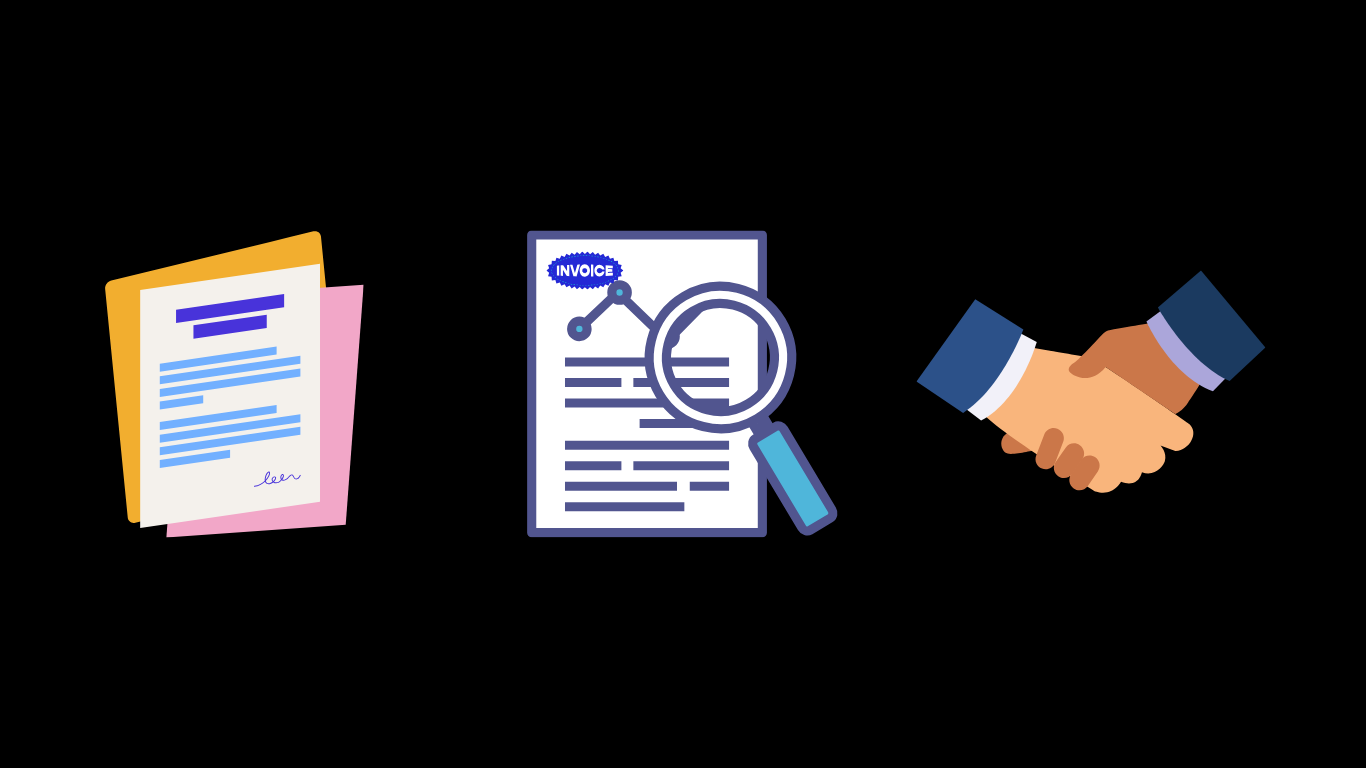Let’s talk about three words that float around every professional space, yet somehow still feel like a mystery to a lot of people:
W9, Invoice, and Contract.
Throughout my career, speaking with hundreds (honestly, probably thousands) of people…artists, entrepreneurs, dreamers, and doers. I’ve realized something shocking: a lot of us don’t know the basics of these fundamental forms. And I’m not just talking about people who are “new” to the game. I’ve seen established creatives, business owners, and professionals still fumbling when these documents come up.
This isn’t judgment… it’s the reality. Nobody teaches us this stuff in school. There’s no “Creatives 101” class where someone sits you down and says, “Here’s how you protect yourself, get paid, and build trust with the people you’re working with.” So instead, most of us wing it, make mistakes, and learn the hard way.
This blog was sparked after a phone conversation with my twin brother. He was asking me about business structure and paperwork, and once again I found myself thinking: How many people really understand what these forms mean and why they’re necessary? Because every time I talk with someone…whether it’s about a W9, an invoice, or a contract, the same puzzled look comes across their face.
So today, I’m breaking it down. Not in corporate jargon, not in a “you should already know this” way, but in the simplest way possible. Think of it like the “explain it to me like I’m five” version. Because honestly, sometimes that’s exactly what we need.
The W9
The W9 is basically a “who are you?” form. It’s how companies know who they’re paying and how to report that payment to the IRS.
If someone asks you for a W9, it’s not scary. It doesn’t mean you’re in trouble. It means they’re ready to pay you, but they need your info to make it official. That includes your name, address, and either your Social Security number (if you’re a sole proprietor) or your EIN (if you’ve set up a business entity).
Here’s the simplest way to think of it: the W9 is your receipt of existence. It tells the company, “Yes, I am a real person or business, and here’s how you can legally pay me.”
Real-life example:
When I do photography or video work for bigger companies, they almost always ask me for a W9 before they cut the check. Without it, no payment. Early on, I didn’t get that… I thought they were just slowing me down. Now I realize they can’t legally pay me without it. These days, I keep a filled-out W9 saved on my computer and phone so I can send it off in seconds. That small move has saved me time, headaches, and even helped me get paid faster.
The Invoice
The invoice is your “Hey, run me my money” document.
An invoice is you, the creative or business owner, telling someone, “This is what I did for you, this is how much it cost, and this is how I’d like to be paid.” It’s your request for payment, but in a professional way. No awkward texts. No “Yo, can you CashApp me real quick?” An invoice sets the tone.
It’s a paper trail. It’s proof of the transaction. And trust me, if you ever want to scale your business, apply for loans, or just look like you know what you’re doing, invoices matter. They’re part of your financial story.
Real-life example:
Every project I take on, I send an invoice. Even if it’s someone I know personally. Why? Because an invoice keeps everything clean. It shows the date, the amount, the service provided, and the payment terms. That way, if someone “forgets” or tries to drag their feet, I have a professional record to point to. I’ve had situations where clients paid late, and instead of getting emotional, I just re sent the invoice with a polite reminder. It changes the whole dynamic… I’m not begging for money, I’m just following up on documented business.
The Contract
The contract is your insurance policy.
It says, “Here’s what I’m going to do for you, here’s what you’re going to do for me, and here’s what happens if either of us doesn’t follow through.”
Contracts protect relationships. A lot of creatives fear contracts because they think it makes things stiff or transactional, but here’s the truth: contracts don’t kill vibes, they prevent headaches. They create clarity. Everyone knows what’s expected. Everyone knows the boundaries. And when things go left… because sometimes they do, the contract is what saves you from losing money, time, or your peace.
Think of it this way: the contract is like the GPS for your project. Without it, both parties are driving blind.
Real-life example:
I once agreed to do a project without a contract because it “felt good” and I trusted the person. Big mistake. Deadlines got blurry, expectations shifted, and suddenly the scope of work doubled while the pay stayed the same. Lesson learned. Now, even for the smallest jobs, I use a contract. It doesn’t have to be a 20 page legal monster… sometimes just a one page agreement spelling out deliverables, timelines, and payment terms. That one sheet of paper has saved me from countless misunderstandings and kept relationships intact.
Why All of This Matters
If you’re an artist, creative, entrepreneur… whatever title you claim, these three things are not optional. They’re the backbone of running your business like a business.
Because let’s be real: if you want to level up, you have to stop treating your work like a side hustle. That means understanding the boring but powerful tools that keep your business (and your money) safe. W9s, invoices, and contracts aren’t just forms. they’re part of your credibility. They say, “I take myself seriously, and you should too.”
When you know this stuff, people respect you differently. You stop getting walked over. You stop chasing payments. You start moving with confidence.
I didn’t write this to overwhelm you. I wrote it because too many talented people stay stuck simply because nobody ever explained the basics. If you’re trying to grow, to build, to turn your creativity into something sustainable… you need to know these things.
So, consider this your sign. Take five minutes today to look up a W9 form. Find a free invoice template. Draft a simple contract. You don’t have to be perfect right away, but you do have to start.
Because if you’re serious about going to the next step, paperwork isn’t the enemy… it’s the bridge.
Hope this helps,
-B
Quick Resources to Get You Started
- W9 Form (IRS official): Download here
- Free Invoice Templates: Wave, Canva, or even Google Docs has simple options.
- Free Contract Templates: HelloSign, PandaDoc, or check out Rocket Lawyer for more formal agreements.
- Pro tip: Save your W9 as a PDF on your computer, keep an invoice template ready, and have a contract outline you can quickly edit. That way, you’re never caught off guard.


Leave a Reply